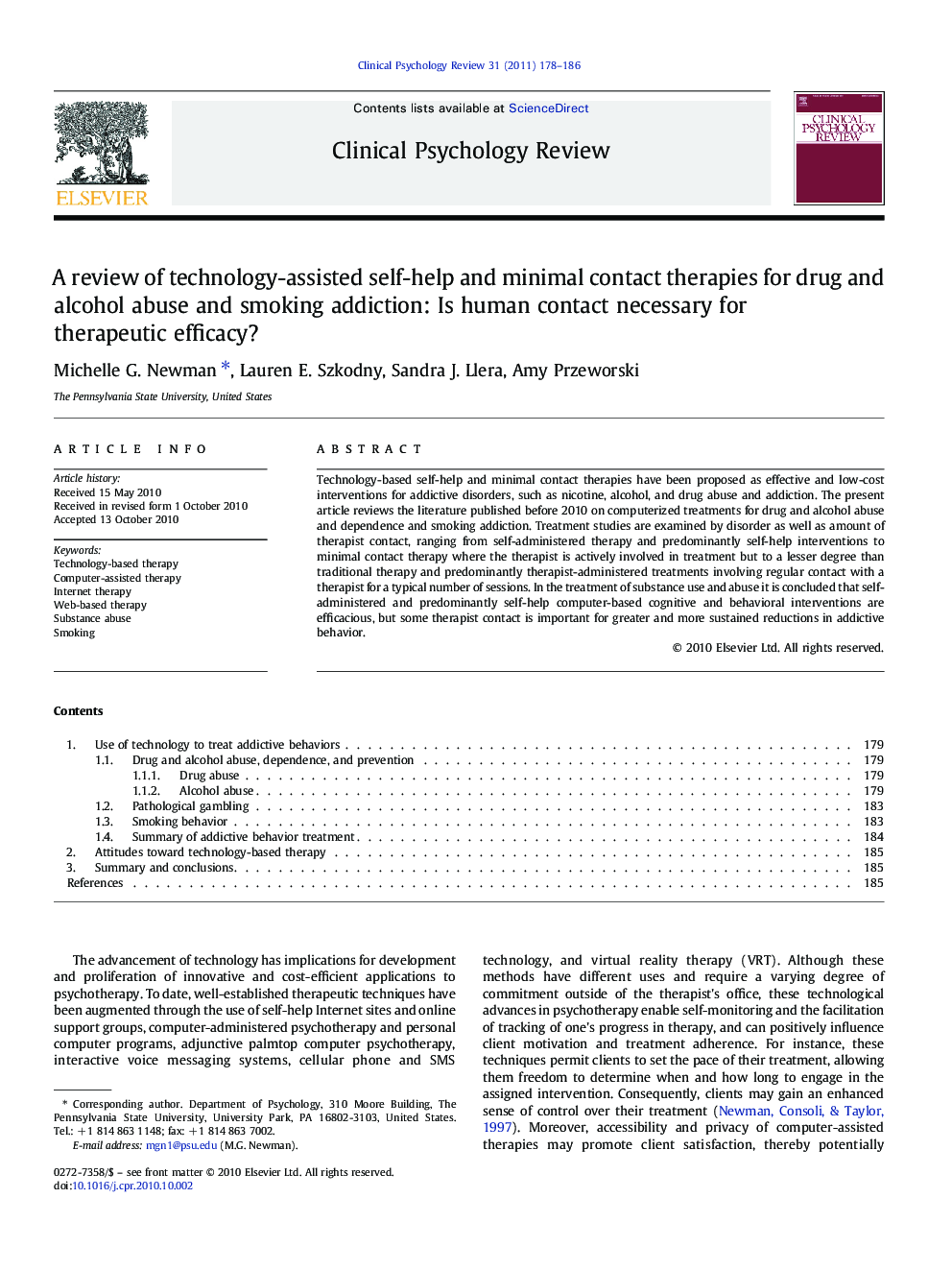| Article ID | Journal | Published Year | Pages | File Type |
|---|---|---|---|---|
| 903680 | Clinical Psychology Review | 2011 | 9 Pages |
Technology-based self-help and minimal contact therapies have been proposed as effective and low-cost interventions for addictive disorders, such as nicotine, alcohol, and drug abuse and addiction. The present article reviews the literature published before 2010 on computerized treatments for drug and alcohol abuse and dependence and smoking addiction. Treatment studies are examined by disorder as well as amount of therapist contact, ranging from self-administered therapy and predominantly self-help interventions to minimal contact therapy where the therapist is actively involved in treatment but to a lesser degree than traditional therapy and predominantly therapist-administered treatments involving regular contact with a therapist for a typical number of sessions. In the treatment of substance use and abuse it is concluded that self-administered and predominantly self-help computer-based cognitive and behavioral interventions are efficacious, but some therapist contact is important for greater and more sustained reductions in addictive behavior.
Research Highlights► Review research on technological applications to psychotherapy for abuse and addictive disorders. ► Critical evaluation of the strengths and limitations of technology-assisted therapy studies. ► Use of extant research to determine the degree of therapist contact that is advisable.
